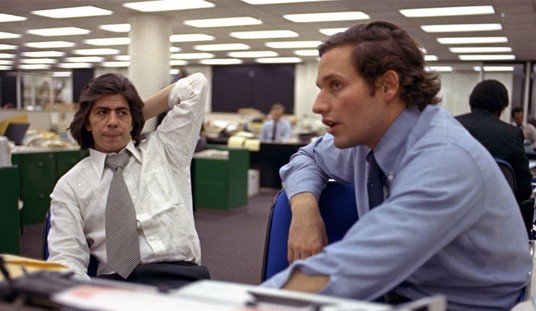The two poster corporations for crony capitalism over the past decade may soon merge — if one CEO can muster enough pressure from “activist investors” to force the other into a deal. Seven years after the Bush and then Obama administrations bailed out Chrysler and GM, the Italian car manufacturer who bought Chrysler wants to merge with GM. Fiat’s Sergio Marchionne hasn’t convinced his competitor to come along quietly, so now Marchionne wants to enlist some allies convince Mary Barra to play ball:
His high-profile calls for industry consolidation have led some analysts to characterize Mr. Marchionne’s pitch as a desperate one, reflecting Fiat Chrysler’s weak operating margins. Although the company is now profitable, a potential industry downturn and the future costs of meeting emissions regulations and investing in new technology leave sizable risks. Fiat Chrysler declined to comment.
Mr. Marchionne has been emboldened by the recent success of activists at GM, the people said, and views them as a means to force consolidation on the fragmented auto industry. The 62-year-old executive has argued for months that excess production, especially in Europe, and duplicate engineering and other costs need to be addressed to boost profitability. He took his rationale to several auto makers around the world with the support of the company’s chairman.
GM resisted Fiat Chrysler’s more recent entreaties, including an appeal earlier this year to Chief Executive Mary Barra for a merger of the two companies. GM has broader scale and has transitioned many of its products to global vehicle architectures, an important move that reduces duplication and boosts production efficiency.
Marchionne wants consolidation in order to reduce competition, which would then allow automakers to invest more into business capital. The reduction in competition would end up leaving consumers with less choice and higher prices — exactly what Marchionne says the industry needs. It would provide, however, an ironic twist to a controversial political intervention in the American auto industry. Had the US government stayed out of the way, either or both companies would have gone out of business, but new investors would have had an opening to pick up the assets and rebuild American automaking in a more profitable model. Instead of having a Big Three, there might have been four, five, six, or perhaps even more lines, with better competition and innovation.
The truth is, as Yahoo’s Rick Newman reports, that Fiat Chrysler may not be all that far away from its own demise. Even in relatively flush economic conditions, the company can barely keep up with the competition:
Marchionne’s concern about his company’s vulnerability is justified. Fiat’s 2009 purchase of Chrysler gave the struggling Italian automaker a streamlined U.S. division that now provides the bulk of the company’s revenue and profit. Yet Fiat Chrysler is still only the seventh-largest global automaker, with a chronically weak home market in Europe, scant investments in new technologies such as electrification, and major shortcomings in its product lineup. Its profit margin is just 0.8%, less than one-third that of GM and one-tenth Toyota’s, according to S&P Capital IQ. And that’s with a booming U.S. market with near-record sales and transaction prices as high as they’ve ever been. …
The crafty Marchionne may be floating the idea of a GM merger as a way to court interest from other automakers.
“They need to find someone who doesn’t have trucks and SUVs nailed down the way GM and Ford do,” says Karl Brauer of car-research site KBB.com. On paper, Fiat Chrysler’s lineup might fit best with Volkswagen, Hyundai or Honda, he says. None offers large trucks and SUVs comparable to what the domestics offer, and instead of an outright merger, Fiat Chrysler might be able to work out a more modest strategic alliance such as Nissan and Renault have had in place since 1999.
On the other hand, Marchionne might have to wait for another crisis to torpedo an automaker and compel it to enter a shotgun wedding. Provided the target isn’t Fiat Chrysler itself.
If the idea is to attract other partners, producing an air of desperation doesn’t sound like the best strategy for success. GM already has its hands full with a likely wire-fraud prosecution hanging over the company based on its attempts to hide its ignition-switch defect. It hardly needs Jeep so badly to take on Marchionne’s problems in an attempt to consolidate R&D effort. And let’s also not forget that Marchionne got Chrysler essentially for free, which former Chrysler CEO Robert Nardelli reminds viewers, and that means a sale of Chrysler to GM would be akin to Fiat receiving a boatload of cash from the GM bailout for nothing at all:
To paraphrase Mark Knopfler: That ain’t working, that’s the way you do it — money for nothing and your Jeeps for free. Only a government operation could produce this kind of result. The “activist investor” twist just wraps up the sordid mess in a perfect, soiled bow.








Join the conversation as a VIP Member